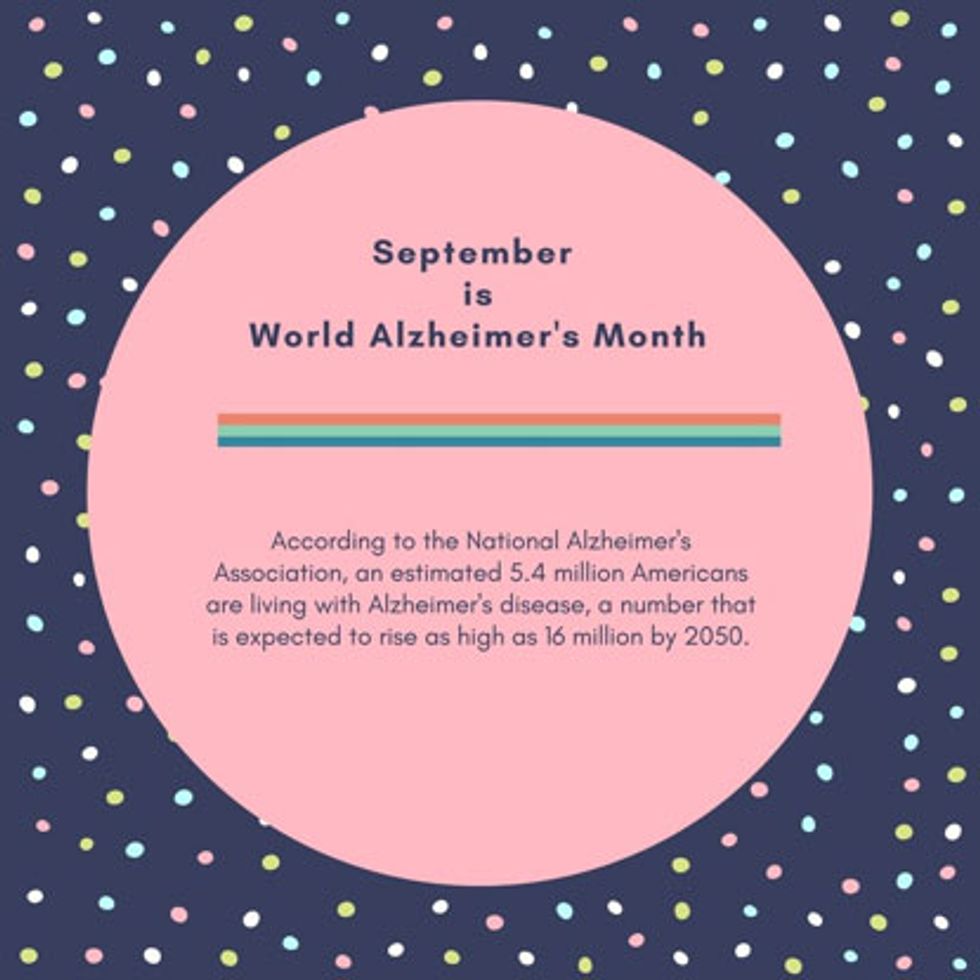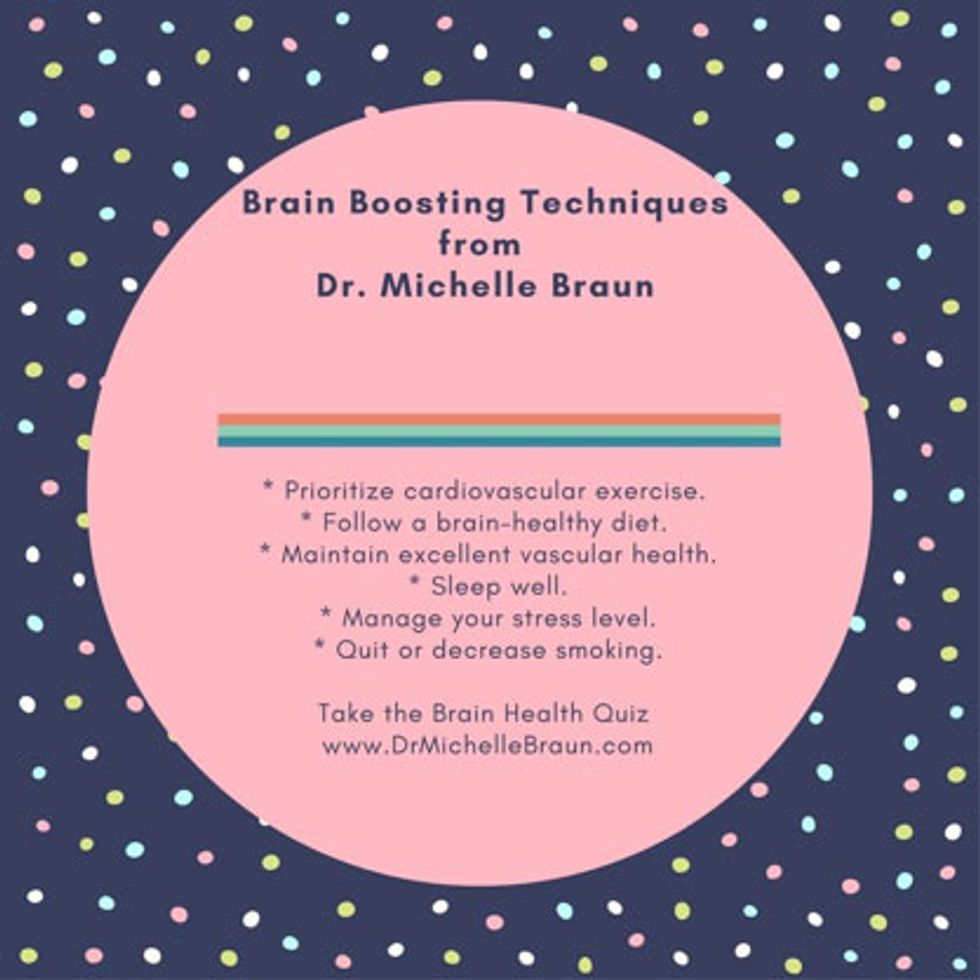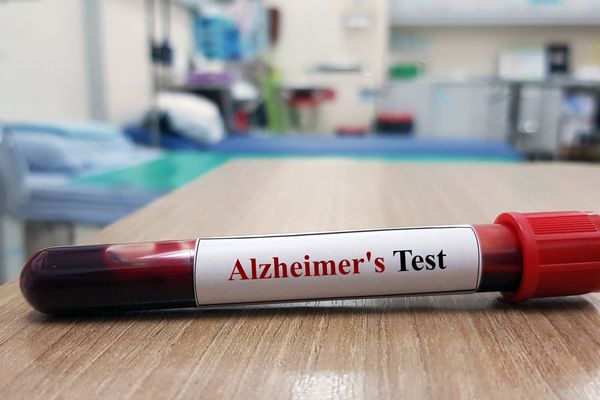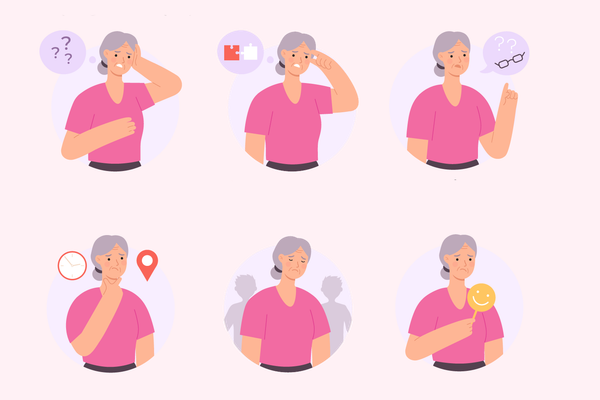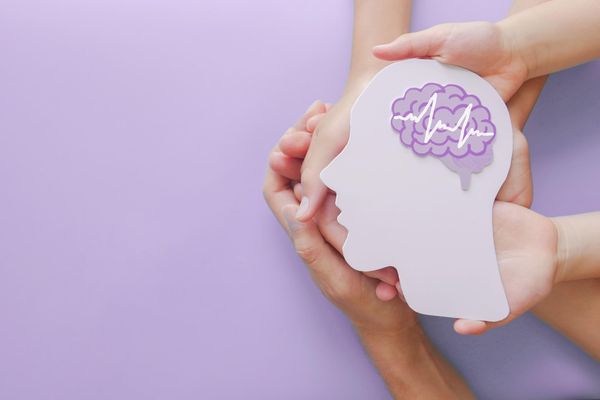I read The New York Times blog called The New Old Age, written by Paula Span. This week, Paula introduced herself in a story behind the story column. She writes, "With more than 20 percent of the American population projected to be over 65 by the year 2030, per the Census Bureau, I'm unlikely to run out of material." In fact, she says the list of subjects she hopes to tackle keeps lengthening.
Let's see, how old will I be in 2030? Hmm, I'll be 72. Ouch!
As I approach 60 next year, I feel like I'm in pretty good shape. However, every aging body has something. Right? One of my friends has knee issues, another has rotator cuff issues, another has back problems. My problem is my teeth. I have one implant already, and with the pain I've been having lately, more to come. Plus, I have flat feet, which is minor, but they hurt after long walks and add to my difficulty finding comfortable shoes.
Alzheimer's and the Aging Mind
Then there's the aging mind and memory. I try to keep my mind active by teaching and doing yoga, reading the newspaper, and researching and writing this blog. However, with the growing statistics on Alzheimer's disease and dementia, it's all so scary.
According to the National Alzheimer's Association, an estimated 5.4 million Americans are living with Alzheimer's disease, a number that is expected to rise as high as 16 million by 2050. And many more women develop the disease than men.
Let's see, I'll be 92 in 2050. Ouch! How should I keep my brain healthy as I age?
Since September is World Alzheimer's Month, I thought I would take time to share my interview with Dr. Michelle Braun, a neuropsychologist who knows a great deal about Alzheimer's and keeping the brain healthy. Dr. Braun developed the Brain Health Quiz, which she shares more about in the interview below.
Here are excerpts from my interview with Dr. Braun:
Q. What are common myths about Alzheimer's?
Dr. Braun: The most common myth is that Alzheimer's is hereditary and that we cannot decrease our risk of developing it. Although there is a strong hereditary risk for early onset Alzheimer's (in which symptoms develop prior to age 65), there is not a strong hereditary risk for most cases of late-onset Alzheimer's (in which symptoms develop after age 65). This is an especially important myth to overturn because 96 percent of all cases of Alzheimer's are late-onset, and lifestyle factors under our direct control can significantly minimize the risk of developing it.
Another myth is that crosswords or online brain games are the best way to minimize the risk of developing Alzheimer's.
Many people also believe the myth that memory supplements can decrease the risk of Alzheimer's.
Another myth is that if a person has changes in brain tissue that are associated with Alzheimer's, they will definitely exhibit the symptoms of Alzheimer's. Autopsies have shown that some individuals with brain tissue changes linked to Alzheimer's do not exhibit memory problems or other symptoms of Alzheimer's in daily life. Protective lifestyle factors are likely responsible for the ability to compensate or "shield" ourselves from expressing symptoms, even if our brain tissue is impacted by the changes linked to Alzheimer's.
Another common myth is that Alzheimer's or significant memory problems are a part of normal aging. In fact, some older adults are "Super Agers" and have remarkable memories. For example, a 2016 study showed that the brain functioning of Super Agers who were 60 to 80 years old was similar to the brain functioning of 18- to 35-year-olds.
Q. What role does your heredity play in risks of developing Alzheimer's and dementia?
Dr. Braun: Even if late-onset Alzheimer's runs in the family, this does not guarantee that other family members will get the disease. Alzheimer's is sometimes linked to genes that increase the risk of developing it, but not necessarily. Many individuals with a genetic risk for Alzheimer's don't develop it, whereas about half of individuals without a genetic risk do. This proves that Alzheimer's is related to much more than genetic factors.
Q: What are the signs that you may have the beginnings of Alzheimer's?
Dr. Braun: There isn't one specific symptom of early Alzheimer's. However, the following symptoms may be a warning sign of a more concerning memory problem such as Alzheimer's and should be reported to a health care provider to determine if a diagnostic memory evaluation is needed:
- New or increasing memory problems that do NOT appear to be explained by a known medical, emotional or situational issue (e.g., some people experience temporary memory problems due to stress, lack of sleep, thyroid issues or other medical problems, and memory bounces back after the underlying issue is corrected).
- One or more people has noticed that an individual's memory has worsened and is impacting the ability to carry out daily tasks (e.g., forgetting whether medication has been taken or whether bills have been paid).
- Increasing forgetfulness for recent events, such as conversations, activities and appointments.
- Increasing word-finding difficulties, such as difficulty naming common objects or thinking of words.
Q: How can post-50 women (and men) reduce their risk of Alzheimer's and other dementia?
Dr. Braun: The best techniques to lower the risk are the same whether or not there is a genetic risk factor for the disease. In addition, brain health is a special priority for women. Two-thirds of the millions of Americans with Alzheimer's disease are women, and women with memory problems are more likely than men to suffer additional memory decline over time.
The reasons for women's increased susceptibility are not fully clear, but evidence suggests it is not simply because women often outlive men and are therefore more likely to be diagnosed with problems associated with advanced age. Some evidence suggests that the same genetic risk factor for Alzheimer's impacts women more than men, while other evidence suggests that estrogen may play a role.
Brain boosting techniques include:
- Prioritize cardiovascular exercise. Several studies have shown that cardiovascular exercise is the most powerful tool in minimizing the risk of Alzheimer's. For example, a 2014 study in Lancet Neurology showed that one hour of weekly exercise decreased the risk of Alzheimer's by half. In addition, people who were physically inactive had an 82 percent increased risk of Alzheimer's. The brain-boosting benefit of exercise is likely related to the growth of new nerve cells in the core memory processing area of the brain (the hippocampus).
- Follow a brain-healthy diet. The impact of a brain-healthy diet is powerful in reducing the risk of Alzheimer's. For example, individuals who followed the MIND Diet (Mediterranean-DASH Intervention for Neurodegenerative Delay) showed a 53 percent reduced risk of Alzheimer's. Recommended foods include nuts, chicken, fish, olive oil, berries, green leafy vegetables, other vegetables, red wine, whole grains, beans. Minimal consumption of five foods associated with decreased brain health is also recommended (fried foods, butter, cheese, red meat, pastries and sweets). The power of diet is likely related to better blood pressure, cholesterol, blood sugar and weight. Antioxidants in brain-healthy diets also help to minimize the destruction of nerve cells by free radicals.
- Maintain excellent vascular health. Minimizing and/or treating high blood pressure, diabetes and cholesterol issues is essential to great brain health.
- Sleep well! Getting 7 to 9 hours of sleep per night is important.
- Stress management helps to counteract high levels of stress hormones such as cortisol, which have been shown to impair memory performance. Stress management can take the form of meditation, relaxation, setting limits on our schedules and reframing how we think about situations that we see as stressful. Treating depression is also important, given that people with depression have a higher risk of Alzheimer's.
- Quitting or decreasing smoking is vital, given that smokers have a higher risk of memory problems and Alzheimer's.
Q: Tell me more about brain exercises that can build up our brain health?
Dr. Braun: Brain boosting activities are one of several powerful tools we can use to maintain or enhance our memory. The most effective brain boosting activities go well beyond our current conceptions of brain exercises and brain games.
Brain boosting activities increase the number of connections between neurons so information is processed more quickly and remembered more effectively. We can also bank those extra neuronal connections for later to potentially delay or stave off the symptoms of Alzheimer's if our brain is impacted by the disease.
The best brain boosting activities are captured by the acronym SAVE. They are:
- Slightly challenging. To grow the strongest neuronal connections, we must do something we are not already expert at. The tasks you choose should be slightly above your current abilities but not so difficult that they are frustrating. You should seek out "head-scratching moments" that require you to actively think through information.
- Absorbing. You should feel engaged and interested in the tasks you do, so that you spend more time doing them. More time = increased neuronal connections!
- Varied. Mix up the activities you do in order to grow neuronal connections in different areas of your brain.
- Enlarge your knowledge. Choose activities that make you a "beginner" again and teach you new information. For example, if you are already an expert at crosswords, you are likely to grow more neuronal connections if you do something other than crosswords.
The best brain boosting activities are different for everyone. Examples include learning a new language, a new route to work, a new gardening technique, new information about a topic you love, watching educational television, and any other task that is slightly challenging, absorbing, varied, and enlarges your knowledge.
A Mayo Clinic study published early this year demonstrated the breadth of brain boosting activities that help minimize cognitive decline. Results showed that the risk of developing memory problems decreased by 30 percent when people used computers, by 28 percent when they did craft activities, by 23 percent when they were involved in social activities and by 22 percent when playing games. The effect was strongest when the activities were done one to two times weekly."
Q: What is the Brain Health Quiz?
Dr. Braun: The Brain Health Quiz is based on hundreds of scientific research studies. It provides users with an estimate of current brain health and personalized, science-backed tips to boost brain health. Many people who have taken the quiz are excited to learn that boosting brain health also often enhances overall happiness, quality of life and cardiovascular health.
Check out these resources
I invite you to join the growing number of people who are taking the Brain Health Quiz at www.DrMichelleBraun.com.
Also check out Dr. Braun's Facebook page for videos and more information on brain health.
Go ahead and take the Brain Health Quiz. LMK how you do. I took the quiz and am proud to say that I am a High Octane Role Model.
This post originally appeared on aboomerslifeafter50.com.


